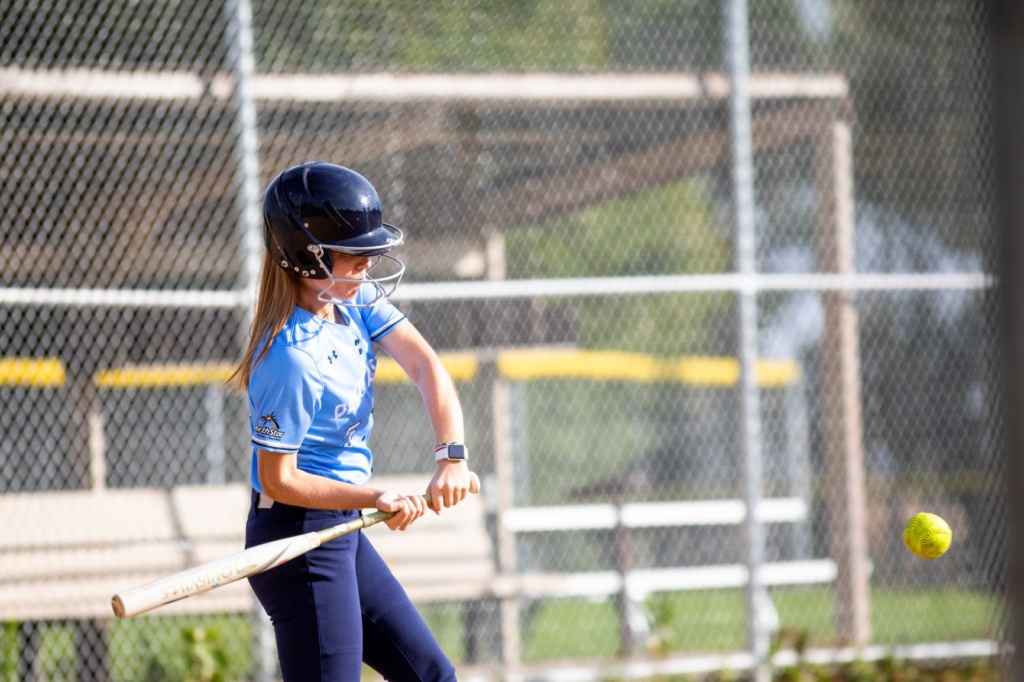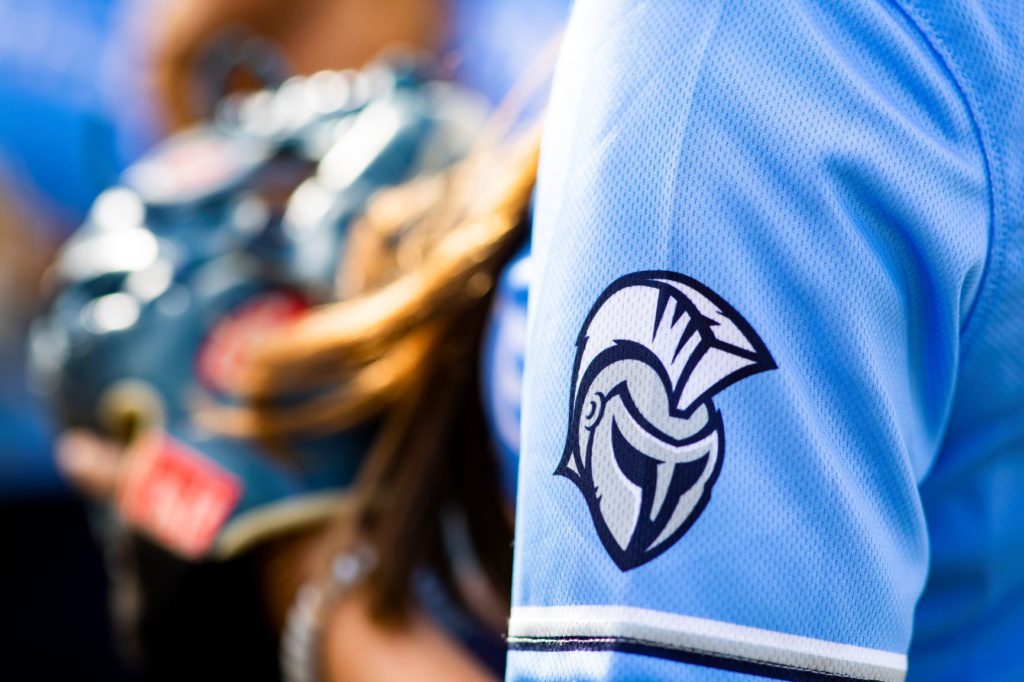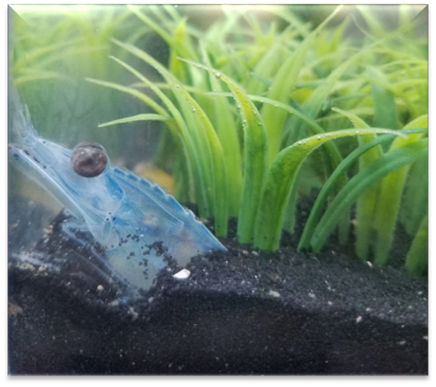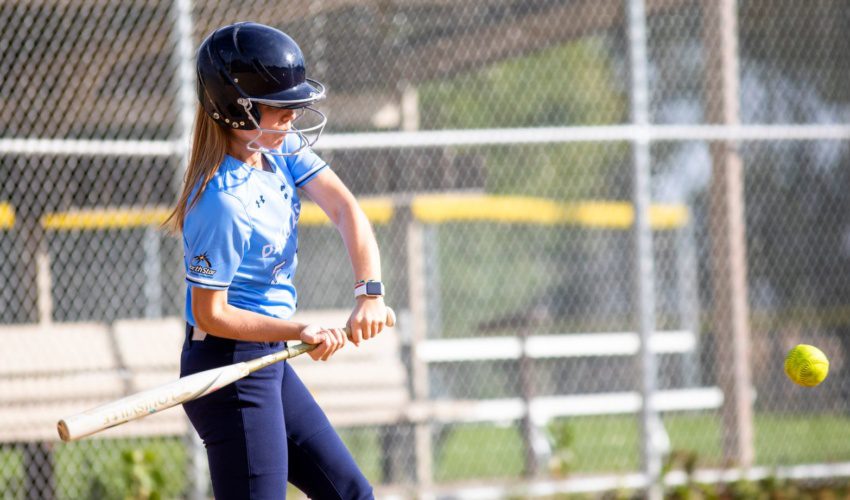DSU student leads research in new direction
March 13, 2020
This paid piece is sponsored by Dakota State University.
When it comes to research, Dakota State University is no stranger.
For the past few years, DSU has increased its research culture both on – and off – campus. From the new Madison Cyber Labs facility to the Annual Research Symposium, the university has created innovative initiatives that span across a wide variety of academic disciplines.
But one DSU student in particular, Xitlali Lopez, is spanning research beyond academics.
Lopez, an exercise science major on the pre-physical therapy track, is researching just how training the brain may give athletes a bigger competitive edge.
“I’m really interested in improving the cognitive and visual skills of athletes. There are very few studies out there about the training of perceptual cognitive skills and its ability to improve an athlete’s performance,” Lopez said.
The beginning research stages involved mentor Kari Hall, instructor of exercise science at DSU. Lopez and Hall collaborated on research ideas, eventually focusing their efforts on the softball world and utilizing the university’s NeuroTracker.
The NeuroTracker, a 3D experience, trains the brain while strengthening mental awareness. Through this device and its three phases — baseline, learning phase and dual-task phase — Lopez hopes to improve cognitive abilities, perceptual cognitive-skills and interpretations of fast-moving objects to improve a player’s batting accuracy.
“This project is unique because she’s looking at something we don’t typically understand or think about in regard to human performance. We need to explore how big of a role neurocognitive and perceptual-motor behavior plays in sports,” Hall said.
With an exciting goal in mind, Lopez began scheduling a small cohort of softball players and carrying out NeuroTracker procedures. She and Hall then selected a control group to receive usual off-season training and a variable group to receive usual off-season training as well as CORE training from the NeuroTracker.
Athletes will be baseline tested for hitting accuracy and post-tested once the off-season and NeuroTracker training is complete. When finished, Lopez and Hall will analyze the data to determine if a significant improvement in hitting accuracy has occurred.
“I’m very excited to see the results. I’m hoping to impact the athletic world by demonstrating the importance of incorporating perceptual-cognitive training into athletes’ practice regimen,” Lopez said.
Closer look into competitive edge
Athletes around the world rely on stamina, agility and self-discipline. They work hard to strengthen these qualities both on and off the court. But when athletes’ cognitive skills are strengthened in line with their physical abilities, they become unstoppable.
So how does the NeuroTracker strengthen their skills? Here’s what the company says:
Using 3D exercises over the baseline, learning and dual-task phases, the NeuroTracker challenges athletes to track yellow balls and then gradually work into simultaneously carrying out other tasks while continuing to keep track of objects on the screen.
This challenges the athlete’s focus, attention span and decision process. So the more time an athlete spends with the NeuroTracker, the better the results:
Attention/awareness: As an athlete, it’s important to stay aware and focus on surroundings. The NeuroTracker subconsciously teaches athletes how to narrow their focus, filter distractions, analyze situations and stay alert.
Decision-making: Whether it’s choosing to pass the ball or take the shot, athletes must make decisions in a split second. The NeuroTracker allows athletes to strengthen their ability to respond quickly and efficiently, improve response time and avoid impulse decisions.
Performance: NeuroTracker studies have shown that mind and body functions are closely connected. With quality training sessions, athletes demonstrate improvements in reaction times, perception of visual cues and increased mental stamina, giving them the competitive edge they need to succeed.
A business perspective
Businesses and organizations of all kinds rely on employees to maintain projects, meet deadlines and achieve company goals. So when it comes to the well-being of employees, employers may want to consider investing in a NeuroTracker.
Why?
The NeuroTracker lets employees take a break from their day-to-day duties in a fun and educational way. With each session, employees have the opportunity to de-stress and strengthen important skills like concentration, decision-making, analysis and visual stimuli.
For information about the NeuroTracker, contact Hall at DSU’s exercise science department in the College of Education at 605-256-5177.









